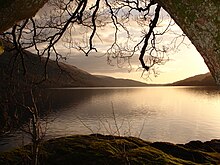Ecosystems

Ecosystems are composed of a variety of biotic and abiotic components that function in an interrelated way. The structure and composition is determined by various environmental factors that are interrelated. Variations of these factors will initiate dynamic modifications to the ecosystem. Some of the more important components are soil, atmosphere, radiation from the sun, water, and living organisms.
Central to the ecosystem concept is the idea that living organisms interact with every other element in their local environment. Eugene Odum, a founder of ecology, stated: "Any unit that includes all of the organisms (ie: the "community") in a given area interacting with the physical environment so that a flow of energy leads to clearly defined trophic structure, biotic diversity, and material cycles (i.e.: exchange of materials between living and nonliving parts) within the system is an ecosystem." Within the ecosystem, species are connected and dependent upon one another in the food chain, and exchange energy and matter between themselves as well as with their environment. The human ecosystem concept is based on the human/nature dichotomy and the idea that all species are ecologically dependent on each other, as well as with the abiotic constituents of their biotope.
A smaller unit of size is called a microecosystem. For example, a microsystem can be a stone and all the life under it. A macroecosystem might involve a whole ecoregion, with its drainage basin.
Wildernessedit
Wilderness is generally defined as areas that have not been significantly modified by human activity. Wilderness areas can be found in preserves, estates, farms, conservation preserves, ranches, national forests, national parks, and even in urban areas along rivers, gulches, or otherwise undeveloped areas. Wilderness areas and protected parks are considered important for the survival of certain species, ecological studies, conservation, and solitude. Some nature writers believe wilderness areas are vital for the human spirit and creativity, and some ecologists consider wilderness areas to be an integral part of the Earth's self-sustaining natural ecosystem (the biosphere). They may also preserve historic genetic traits and that they provide habitat for wild flora and fauna that may be difficult or impossible to recreate in zoos, arboretums, or laboratories.
Comments
Post a Comment